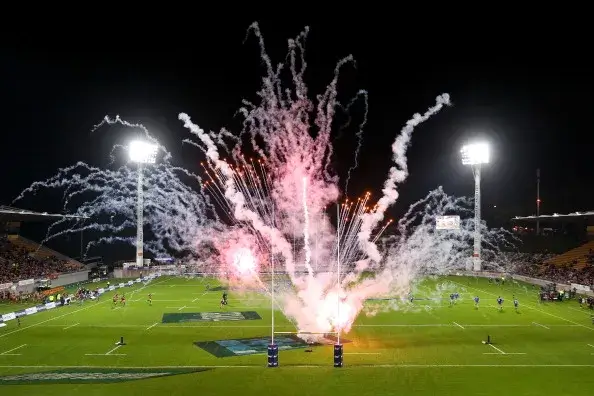Good morning fellow G&GRs and welcome to Hump Day. Another few hours of reminiscing before we start focusing on what this weekend will bring. Will our team step up this week or will we be lamenting yet another poor game. The ladder seems to be sorting itself out and while the top 5 or so may swap positions in the last couple of games, the real interest will be who manages to step up to fill the last few spots and will they be more than just a one game wonder in the finals.
As always this is a fan site and if you have an idea for an article and don’t feel comfortable putting it up yourself, try this link and let us know so one of us can then take your words and get them out here.
Referee Corner
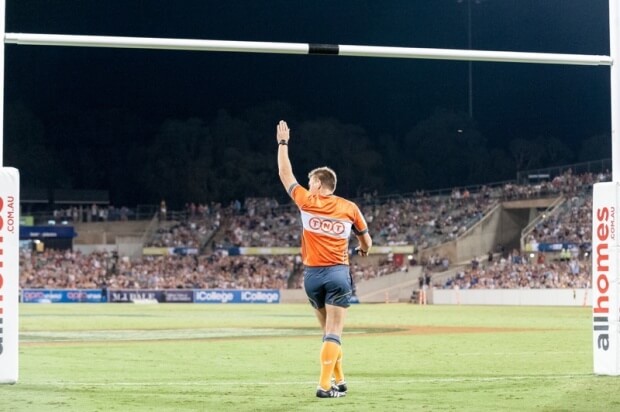
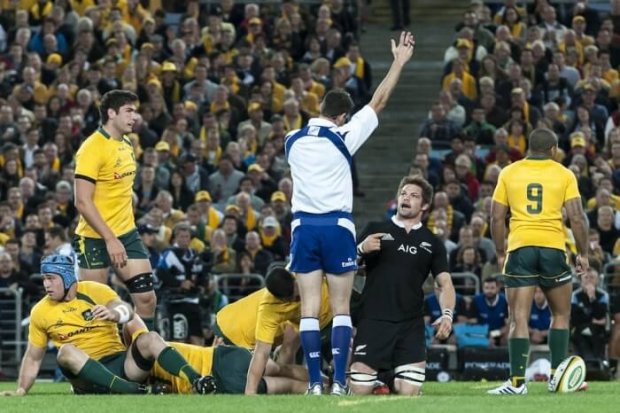

So, another week where there weren’t any huge controversial issues from the referees. Like most I was surprised that the arm contact of Sef Fa’agase against Tupou wasn’t seen and also wasn’t cited after the match. Other calls such as the penalty try and YC that saved the Brumbies were pretty straightforward, and Vunivalu’s YC and then 2nd YC for exactly the same dumb move certainly seemed to be accepted by all.
One of the comments that has come up a number of times has been about how the scrums are a dog’s breakfast, and the referee is just guessing what’s happening. Most of this comes from the front row or other tight forwards who seem to think they somehow have a line on what happens that no one else does, and that because they’re there doing the hard yards they know more about it than anyone else. Most seem to believe that for all the training that referees do, this is one area of the game they don’t train for and that’s why a referee can never understand what happens and will never know as much as them about the so called ‘dark arts’ of the scrum.
Now having been to Egypt and visited the pyramids I can easily see how conspiracy theories start; it’s very hard to accept they were built by the local Egyptians when you see how poor their modern buildings are, but to somehow believe that one of the most important areas of the game is ignored by referees because it’s too hard. Sorry, but that’s up there with vaccines cause autism and 5G is a way for the government to control our thoughts.
Even at my level I have spent a lot of time on scrums. In Wellington we had two of the Hurricanes props come out and for two days we went over each of the positions in the scrum and what they were trying to achieve both on attack and defence, how they’d do it in different areas of the game and what they would do to try and have the scrum go their way. A top class referee like Gus Gardner would be doing this and more every year, so to say they don’t know what’s going on I think is wrong.
Here’s a process for setting the scrum and watching what goes on. First the decision is made to have a scrum and I mark where the centre of the scrum is. At my pre-match brief I tell the front rows that I want to see a brake foot out and heads above the waist at the crouch call, once they settle, I call bind and here I’m looking for a gap between the front rows (I tell them to bind and push back with their arms to achieve this). On set I want them to come together and the main two things I look for is the tight head prop up and straight, and the loose head prop straight. By ‘up and straight’ I mean head remaining above the hip. The two front rows come together with both trying to win the hit. Here the first thing is that once they hit, they stop pushing and wait for the ball to come in. I watch to see then settle and while pushing against each other, neither team is twisting or trying to move the scrum around. Once they are settled from the hit, I step back to allow the 9 to feed and at this time I look at both backlines to make sure they are 5 metres back and then at the flankers to make sure they are staying straight (not such an issue now that the 9 isn’t allowed to follow the ball). I then look at the front rows to see that players are remaining straight and not angling in, that the props aren’t trying to pull the other prop down (by lowering an elbow and pulling down), that they are staying bent at the waist and not standing up. Once the ball is in – and no I don’t look at it as there is far too much more to look at, so unless a captain complains I don’t bother – I then look at who’s won the ball and who’s winning the push – often not the same team. Now it’s all about is the scrum moving, and if so, is it (relatively) straight. If it’s turning are the body positions indicating one side stronger, or one side pulling back (and yes you can usually tell) – I will tell a stronger scrum that I put it on them to keep straight which usually works. I also have to look at the backlines and make sure that they are remaining 5m back and that, especially the defending team, isn’t creeping forward. Once the ball is at the back of the scrum, what happens depends on a number of things. Is the dominant scrum pushing forward for a try? Are the props coming up or collapsing?, and this is usually indicated by the loss of a bind or dropping of knee on the ground – usually missed unless looking for, so sometimes it takes a couple of scrums to pick up on it. If it does go down and the ball is available, I’ll usually call play and let the forwards sort themselves out; however, if the ball isn’t available then I’ll have to decide if one side or the other is responsible and if it warrants a sanction or a reset. I’d reset before giving sanctions but persistent infringements do result in a sanction.
There have been a couple of times where one scrum was so much stronger that the front row becomes unsafe, and I’ve told the dominant scrum to not push but just win the ball because if it continues, I’ll have no option but to go to uncontested scrums. Do I get it right 100% of the time? Hell no! But I do think I get it right most of the time and that’s enough for me. I think most of the comments about not understanding the calls are due to two main things. Firstly, the viewer, even live at the game, does not get as good a look as what the referee does and so can’t always see what the referee sees. Secondly, the referees are not good at explaining why they have made the decision. A call of “Blue pushing early!” for example, isn’t telling us which player or players pushed early or what else was going on, and because we don’t know that we are unsure and so tend to jump to the “referee is guessing” call. I personally believe that, certainly at the top level, the referee is getting it correct most of the time. As for the crooked feed. I do get it, but if a team wins a scrum, it’s usually because of a mistake from the opposition and a crooked feed only gives the team who won the scrum the ball, so is it a huge issue? With everything else that is going on and needing to be looked at, something that gives the team who “won” the scrum the ball is low down on my list of priorities.
No bad blood as coach Coleman and Waratahs call time
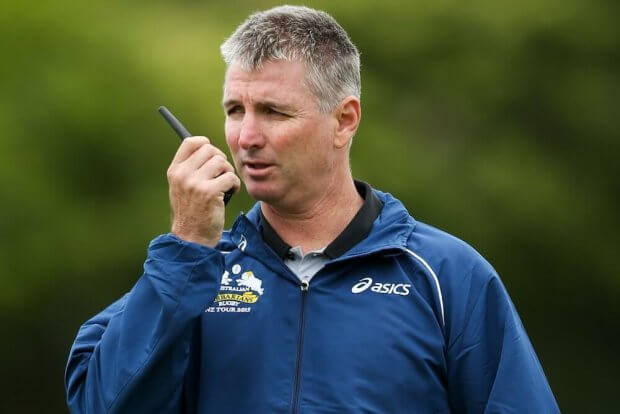
In an article here in rugby.com.au that clearly demonstrates Coleman is a class above the people running the show at the Tahs Darren Coleman says there is no bad blood between him and the Waratahs hierarchy and hopes to return one day for another crack as NSW coach.
Coleman insisted he didn’t feel hard done by despite a huge injury toll contributing to their ladder position. “The board and the organisation have taken everything on board and they’ve made the best decision,” said Coleman, adding he felt relief the decision had finally been made after it was floated at round four. “There’s definitely no bad blood from my end, I’m not slinging, throwing any rocks on the way out.”
He ran through six emotions he was feeling: appreciative for the opportunity, thankful for the friendships, sorry for the lack of success, frustrated by their injuries, proud of the initial impact he had and motivated to finish the season on a high. He said he would like another chance at NSW in future when he was a “better coach”. “I’m motivated to reflect, to learn and improve from this experience and to continue to enjoy the fruits of this great sport.
“The dreamer in me would love to come back one day, 10 years down the track and have another shot at it as a better coach.”
Classy comments from a classy guy who is a victim of RA’s inability to provide decent coaching pathways as much as anything else. The step up from club to Super is too big of a jump and both players and coaches need a better way to learn their wares and to develop better skills and knowledge before they take the reign. I think that until this occurs, the franchises here are just going to continually rotate coaches who can’t get what is needed because neither they, nor their players have the skills and knowledge to get there. A bit of a shame when it wasn’t that long ago Australia led the world in the development of coaches and players.
‘Get on the phone’: Legend calls for Cheika return
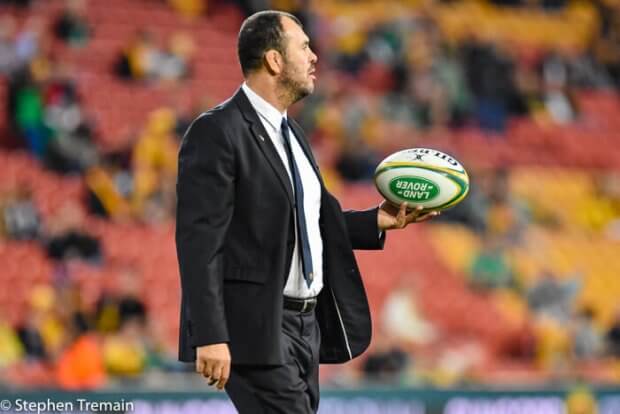
On the same subject and demonstrating the nepotism and cronyism that is driving so much in NSW rugby, reported here on MSN’s wide world of sports, Tim Horan has urged the Waratahs to waste no time in sending Michael Cheika an SOS to rescue the ailing NSW club.
The Waratahs are officially back in the coaching market after announcing on Monday that Darren Coleman wouldn’t be offered a contract extension at the end of the Super Rugby Pacific season. NSW are in last place with a 2-10 record and two games remaining. (I almost repeated that just so you could read it twice.)
France-based Cheika is available for work after parting ways with Argentina after guiding them to the semi-finals of last year’s Rugby World Cup. Waratahs chief executive Paul Doorn said on Tuesday that the coaching hunt had started but he had not yet spoken to Cheika.
Former NSW star Grey has previously worked under Cheika with both the Waratahs and Wallabies as his defence coach. Horan said a reunion made a lot of sense. “I reckon the best choice if he was available, Michael Cheika for two years, to then bring through someone like a Nathan Grey, for two years, to then be head coach…” Not that the last time they worked together they had any success.
I know a lot of people even on this site are calling for Cheika, but to me that just further demonstrates the deplorable state of coaching development. Maybe Cheika will do a good job, but I personally think there are too many downsides to him and while I do believe he is a good motivator, I don’t think he has a lot of actual rugby smarts. He got to the final of the RWC in 2015 through a mistake made in the game against Scotland that let him off the hook before getting thumped against NZ, and he got to the semi-finals at the last RWC through the poor draw that allowed him to bypass any of the 4 teams that would have ended his journey. I think he’ll cause even more problems with the players and supporters and for me it would be a backward step.

